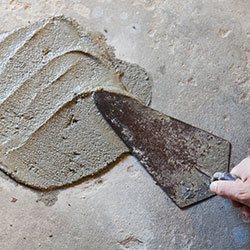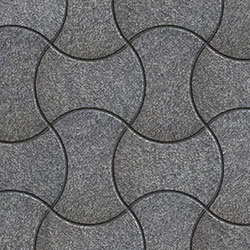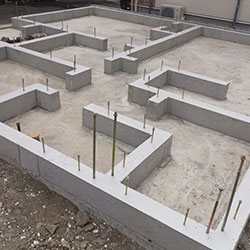




Welcome To The World Of Concrete Specialists
We offer the following services free of charge:
- Design
- Consultation
- Advice
- Estimates
We understand that it is sometimes difficult for a person unfamiliar with concrete to understand the terms, and conditions applicable to concrete construction. We have therefore made our website as user friendly as possible. We additionally have provided a basic course regarding concrete, its applications, its history, its composition, and other facts related to concrete construction. It is our hope this information is useful to you in your quest to find a reliable concrete contractor to perform your work.
We additionally understand that without knowledge and information, the task of finding a reliable and proficient concrete contractor becomes more difficult. We have therefore provided you with as much information as possible allowing you to make an informed decision.
It is our hope you elect concrete specialists as your concrete contractor, however, no matter who you choose for your work, we hope our website has given you the information necessary for you to make an intelligent, informed decision about your concrete contractor.
Thank you for your interest. We look forward to completing your concrete or building project.
Please note, even if you do choose another contractor, we will still offer free advice, so give us a call if you feel the need for more info regarding your project. Thanks again for your interest in Concrete Specialists.
The Greater Houston Area Concrete Specialists
It can be hard to find a reliable and trusted contractor when attempting to perform any construction project. There are many people just looking to make a quick buck by promising more than they deliver and by using substandard building materials. Concrete Specialists has slowly built a reputation of excellent craftsmanship over the years because trust is earned. With each concrete project we have taken on, we know that it is not only a job but a chance to display our skills and build our reputation.
FREE QUOTE
(832) 533-8885
OUR SERVICES


Stamped Concrete

Foundations
Concrete Specialist is a small company dedicated to doing concrete "The Right Way" for the ultimate satisfaction and benefit of our customers. There are many myths about concrete construction and placement. Below you will find answers to questions you may have regarding concrete installations. We try to dispel the myths and incorrect information regarding concrete installations. You are here because you seek knowledge and information about concrete work. The best customer is an informed customer. There are four specific rules that govern slab on grade applications. Thet are; (1) Preparation of subgrade (2) Reinforcement, (3) Type of concrete (also called PSI, Or compressive pounds per square inch). And (4) Proper and correct placement of control joints.:
Preparation of Subgrade
The reason the subgrade is so vital to good concrete installations is due to many things. Its why concrete should never be placed on mud, or any unsound subgrade. Certainly concrete hardens, but when placed on a unsound subgrade, A void can occur underneath, water infiltraton is perhaps one of the basics. also, please understand that concrete is only as sound as what it is placed upon. think about it. Professionals doing streets or highways spend more time in subgrade preparation than pouring the concrete. water is concrete's worst enemy. When water gets under unprepped concrete that does not have a subgrade, many things happen, but all of them are bad!! Concrete should never be placed on a dirt subgrade!! Dirt is easily compromised by water infiltration. When one looks at any professional concrete placement, one sees them place a subgrade prior to the concrete. They may spend more time on the subgrade than on the concrete placement because concrete must have a solid subgrade. Concrete specialists always place a subgrade beneath all slabs. The subgrade is composed of either bank sand, or crushed concrete. Then we compact the subgrade with a plate compactor to insure a solid subgrade prior to concrete placement. After removal of the existing concrete, most Houston concrete contractors place the concrete right back on the dirt subgrade. This should never be done!!
Reinforcement
The primary concern for those wishing new concrete work is how the concrete will be reinforced. Many, many of the older homes do not have reinforcement in their concrete driveways or patios. Many people think the cracks are caused by lack of rebar or reinforcement. This is not true! For a "slab on grade" application, there are basically two types of reinforcement i.e., rebar or wire mesh. Concrete specialists use both types, dependent upon the customer's wishes. To dispel a popular myth -- rebar or reinforcement "does not"-- i repeat - "does not" prevent indiscriminate cracks in slab on grade concrete! If one wants to minimize cracking, use a higher psi mix of concrete and insure control joints are correctly installed. More info regarding indiscriminate cracks below!
Type of Concrete
There are all types of concrete mixes. concrete can be ordered in a variety of ways. All concrete is not the same!!
The type of concrete used on your project should be ordered to fit your specific project. the type of concrete a ready-mix plant batches is called the "mix design". if your contractor does not know the mix design for your project, I suggest you use a different contractor. the mix design is just like the oil in your car. it should be the correct type or there will be consequences. Concrete can be ordered with different ingredients. It will always have aggregate, sand, cement and water. What makes one mix different than the other is the additives and the amount of cement ordered for the mix. For example, "retardant" can be ordered in the mix to slow down the hydration or curing process. CC (or a form of antifreeze),can be ordered in the mix to prevent the water from freezing. "Accelerant" can be ordered (high early cement), to hasten the hydration process without losing structural integrity. These are just a few of the additives and mixes available to your contractor. Ready mix plants provide what’s ordered by the contractor. The additives can do many things and affect the structure, viability, and strength of concrete. primarily, the strength of the concrete depends on the amount of "cement" in the mix. The more cement = the greater the strength. think of cement as the glue that holds the other ingredients together. The stronger the glue = the stronger the concrete. there are many other additives and components to good concrete. For example "fly ash" can be good and bad for concrete. A little is good, a lot is bad. Years ago in Houston, sea shells were used as the aggregate in concrete because there was not aggregate plants. in the heights, one can still see some driveways with seashells used as the aggregate. They are still used today in some parts of the world. the bottom line is - your contractor should know the type of concrete he is using for your work. Concrete specialists always gives the customer the mix design conjunctive with the proposal allowing the customer to know exactly what type of concrete is being used.
Control Joints
The number one reason for indiscriminate cracking in slab on grade concrete is improper placement of control joints !!!
I must emphasize again, how important proper placement of control joints in slab on grade concrete is to the prevention of indiscriminate cracks !!!
The second reason is due to water infiltration because of rotted out wood control joints. Once the wood has rotted, it allows water to get under the slab.
When water gets beneath a concrete slab, many things happen ... but all of them are bad !! Concrete specialists does not use wood for control joints unless specifically requested by the customer.
We use a engineer depressed type of control joint, no wood, and place them within 120 square foot mass of concrete in the aggregate.
As a general rule (slab on grade 4 inches thick), concrete cracks within an aggregate mass exceeding 200 square feet. if control joints are not correctly spaced, regardless of the amount of reinforcement one has, the concrete will suffer an indiscriminate crack.





